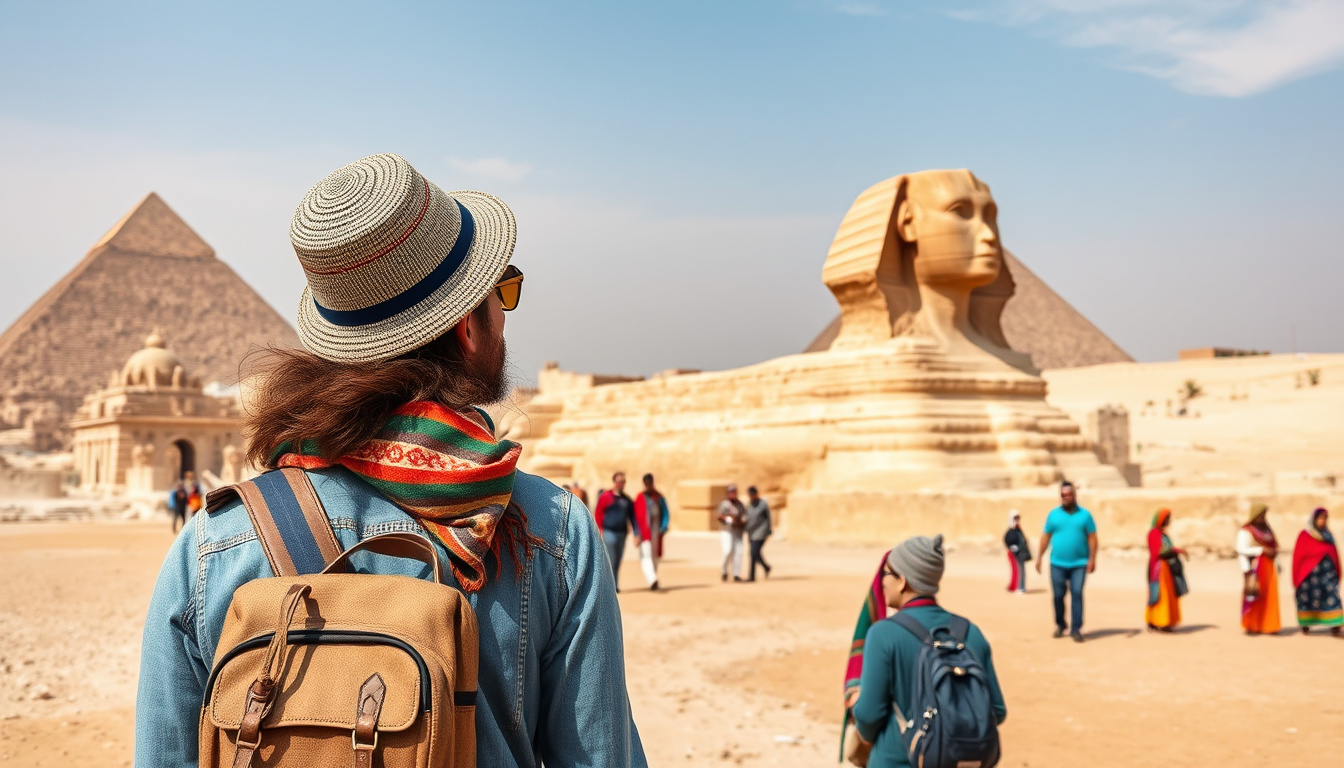Egypt—the land of ancient wonders, enduring mysteries, and a vibrant culture that continues to fascinate travelers from across the globe. For a European adventurer, visiting this North African country is an immersive experience filled with unexpected encounters, historical marvels, and unique cultural insights. This article shares the authentic travel experiences and observations of a European visitor navigating Egypt’s bustling cities, iconic monuments, and everyday life, unveiling what it truly means to explore the land of pharaohs.
Arriving in Egypt: A Wintry Contrast
Traveling from chilly Europe to Egypt initially feels like escaping winter’s grasp. However, the traveler quickly discovers that Egyptian winters can be surprisingly brisk, with locals sporting jackets and warm clothes. This subtle detail challenges preconceptions about Egypt being perpetually hot and sunny, offering a glimpse into the country’s seasonal diversity rarely covered in travel brochures.
The first impressions are marked by the stark contrasts of modern and traditional life. Streets hustle with motorbikes and cars, yet the traffic feels chaotic and unregulated to a European eye. Crossing a street becomes an unexpected challenge, especially with no clear pedestrian crossings or signals. The traveler learns to navigate Cairo’s vibrant streets, understanding that traffic flows differently here but carries its own rhythm and logic.
Cultural Curiosities and Street Life in Cairo
Street life in Cairo bursts with spirited activity but also surprises that push the traveler’s expectations. From encountering pigeons used in street food to witnessing ingenious local business ideas—such as men charging entrance fees to derelict buildings for tourists—the adventure is as amusing as it is bewildering.
One of the striking observations is the sharp divide in pricing for locals and foreigners. Entry fees to historical sites are often significantly higher for tourists, reflecting a system designed to capitalize on foreign visitors’ curiosity. This revelation leads to a reflection on cultural and economic disparities experienced by travelers and locals alike.
The visit also highlights everyday urban realities like littering in public spaces, the absence of trash bins in busy areas, and the challenge this poses to maintaining city cleanliness. Observing these elements provides deeper understanding of the complexities Egypt faces in balancing historical preservation with modern urban living.
The Majesty of Ancient Monuments
Despite the challenges and surprises, the timeless allure of Egypt’s ancient monuments remains undeniable. From the imposing pyramids to seemingly endless stone structures, the traveler is awestruck by their scale and the sheer human effort involved in their construction.
The pyramids not only hold historical significance but also serve as a testament to how Egypt has transformed ancient wonders into modern sources of income. The traveler marvels at the ongoing “business” of tourism centered around these ancient sites, noting the longevity of Egypt’s cultural heritage and its role in sustaining the economy today.
Interestingly, this enduring legacy sparks reflections on the ingenuity of ancient Egyptians, not just as builders but as precursors to modern entrepreneurial spirit. The traveler recognizes how current Egyptians continue to leverage their heritage thoughtfully amid evolving tourism landscapes.
Navigating Local Customs and Food
No Egyptian adventure is complete without sampling the local cuisine and engaging with cultural customs. The traveler experiences both delight and confusion with street food—questioning unusual dishes like burgers combined with Egyptian specialties—and learns to embrace the unexpected in local flavors.
Encounters with locals also reveal the warmth and cleverness of Egyptians. Whether through friendly interactions, bargaining at markets, or witnessing the resourcefulness displayed in everyday life, the traveler gains newfound respect for the social fabric and entrepreneurial savvy woven into Egypt’s vibrant society.
Tips for European Travelers in Egypt
- Prepare for Climate Variations: Pack layers to accommodate Egypt’s surprising winter chills.
- Learn Street Crossing Techniques: Study local traffic patterns before stepping into busy streets.
- Be Aware of the Tourist Pricing System: Understand the dual pricing system to avoid surprises at historical sites.
- Embrace Local Cuisine: Sample street food but approach unfamiliar dishes with an open mind.
- Respect Cultural Nuances: Engage with locals respectfully and be mindful of customs and traditions.
Frequently Asked Questions (FAQ)
Q: Is it safe for European travelers to explore Cairo alone?
A: While Cairo is bustling and can feel chaotic, many solo travelers navigate it safely by staying alert, following local advice, and avoiding less-populated areas at night.
Q: What is the best time to visit Egypt to avoid extreme weather?
A: The ideal time is from October to April when temperatures are milder. Be prepared for cool evenings during winter months.
Q: How do I handle the dual pricing system for tourists and locals?
A: Carry local currency, check official prices beforehand, and have patience when negotiating. Accept that some price differences are common, but always stay informed.
Q: Are street pigeons actually eaten in Egypt?
A: While pigeon is considered a delicacy in some traditional Egyptian dishes, eating street pigeons is uncommon and discouraged due to health concerns.
Q: What are must-see sites beyond the pyramids?
A: Consider visiting the Egyptian Museum in Cairo, Khan El Khalili bazaar, Luxor’s temples, and the Valley of the Kings for a deeper dive into Egypt’s history.
Conclusion: The Quintessence of the Egyptian Journey
Traveling through Egypt as a European adventurer is an exhilarating blend of awe-inspiring history, cultural surprises, and personal challenges. It offers a unique lens through which one can appreciate the enduring legacy of the pharaohs alongside contemporary life’s vibrancy. From navigating chaotic city streets and understanding local business ingenuity to marveling at monumental stone architectures and sampling exotic cuisines, the journey is as enriching as it is eye-opening.
Ultimately, Egypt invites travelers not only to witness its past but also to engage actively with its present—a place where history and daily life intertwine, and every street tells a story. For those willing to embrace unpredictability and seek authenticity, Egypt promises a deeply rewarding adventure in the true land of pharaohs.

